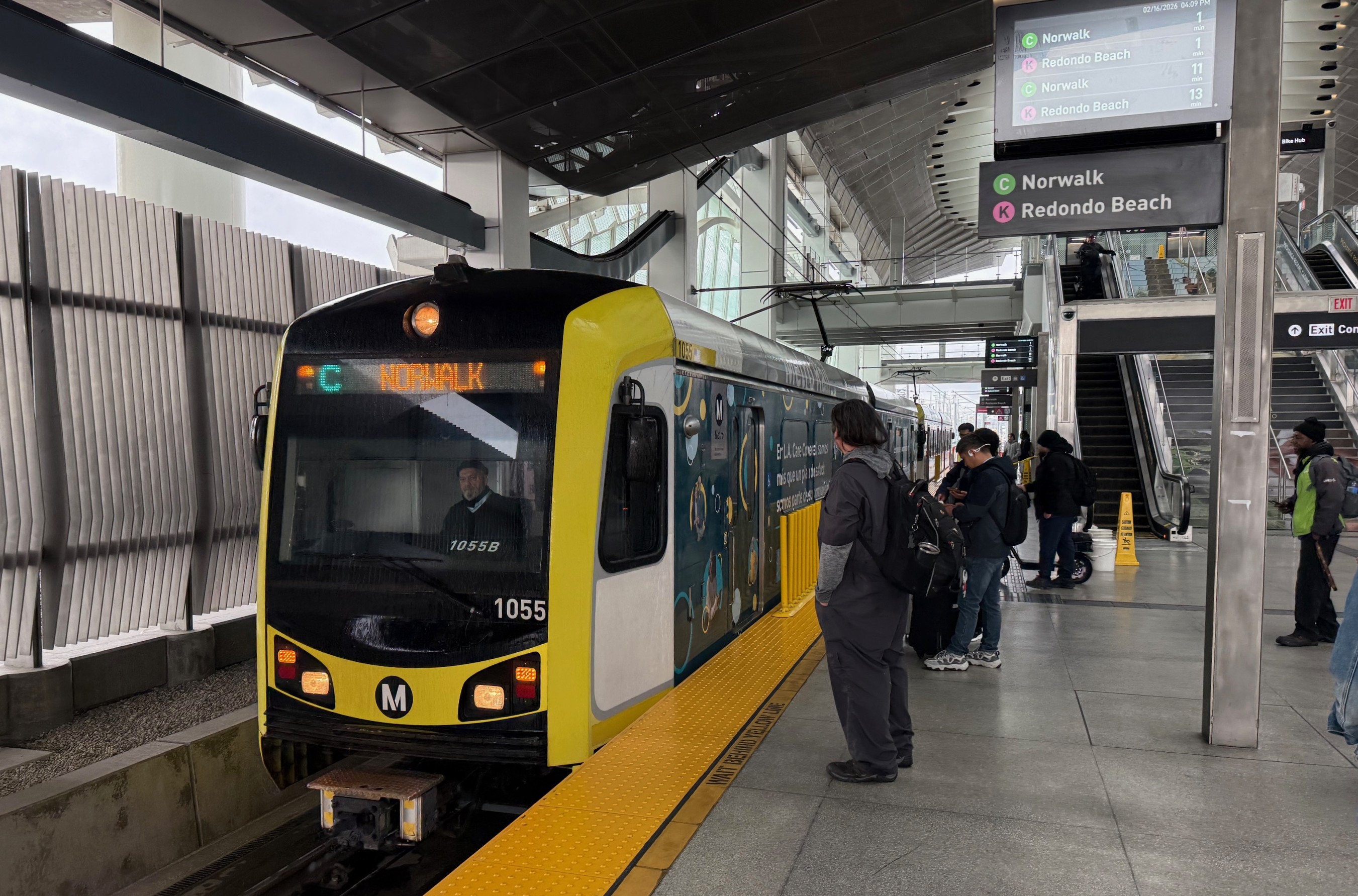Megan McArdle at the Atlantic, writing on
today's Toyota hearing in the House oversight committee, hears
Transportation Secretary Ray LaHood claim that "lowering the speed
limit to 30 mph would not save any lives, which is why we have minimum
speeds on highways."
 LaHood, at left, with the president at right. (Photo: whitehouse via Flickr)
LaHood, at left, with the president at right. (Photo: whitehouse via Flickr)Leaving aside the gaping logical hole in that statement -- which Robert Mackey of the New York Times suggests (check out the 12:04 post here)
may have come from Souder's argument that lower speed limits would save
more lives than "100% safe" cars -- there is plenty of research out
there pointing to the beneficial effects of lower speeds on safety.
Traffic author Tom Vanderbilt recently cited
the impact of 20 mile-per-hour urban speed zones on reducing road
injuries in the United Kingdom, and a 2007 study by the AAA Foundation
for Traffic Safety [PDF] outlined the following "general rule of thumb":
Whentravel speed increases by 1%, the injury crash rate increases by about2%, the serious injury crash rate increases by about 3%, and the fatalcrash rate increases by about 4%. The same relation holds in reverse: a1% decrease in travel speed reduces injury crashes by about 2%, seriousinjury crashes by about 3%, and fatal crashes by about 4%.
Could
LaHood be unaware of the relationship between lower speeds and
decreased risk of injury? It's certainly possible -- despite the former
GOP lawmaker's good record on infrastructure reform and sustainability,
both in concept and in practice, he remains a relative newcomer to the nitty-gritty of transportation, as the Times reminded readers in a highly readable profile last year.






